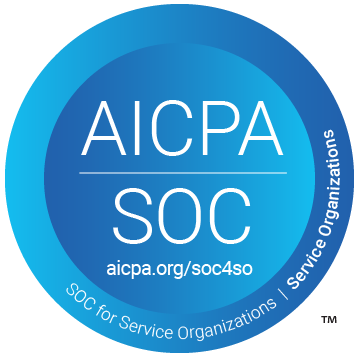
Safeguarding Success: Navigating Compliance in Credit Card Processing
Any organization that wants to launch a credit card program can easily get overwhelmed by the sheer magnitude of compliance requirements. While banking laws have existed for decades, lending regulations and requirements have grown increasingly arduous and complex.
What’s more, nearly nine in ten financial services organizations have reported rising compliance costs over the past five years — and 10% say that costs have doubled. However, the cost of non-compliance tends to be more severe. Firms have been fined a total of $4.2 billion in enforcement actions for a wide range of regulation violations in 2022.
This highlights the need for credit card programs to have systems and processes in place to handle compliance and mitigate program risk, but navigating the alphabet soup of compliance requirements is no easy undertaking.
This article provides a cursory overview of key credit card compliance regulations, explains how a compliance management system (CMS) works, and explores options for organizations to manage compliance in a feasible, seamless way.

The ABCs of Compliance
One of the biggest challenges in credit card compliance is navigating the many regulations — from anti-money laundering (AML) to Regulation Z. While the following list is not exhaustive, it will give you an idea of the many compliance considerations of running a credit card program.
Bank Secrecy Act (BSA)/AML/OFAC – The BSA allows the US government to identify illegal activity by monitoring and reporting suspicious activity and tracking certain cash-based transactions.
Know Your Customer (KYC) – KYC requires financial services companies to verify a customer’s identity and known risk factors to prevent terrorism financing, money laundering, and other financial crimes.
Service Organization Control Type 2 (SOC2) – SOC2 provides a framework for data security standards to ensure that third-party service providers securely store and process client data.
Fair Lending Laws (Reg B – ECOA, FHA, HMDA, CRA) – Numerous fair lending laws prohibit discrimination and guarantee the same lending opportunities to everyone, regardless of disability, national origin, sex, race, color, familial status, or religion. These laws outline lending practices that may be specifically prohibited, permitted, or required.
Military Lending (MLA, SCRA) – The Military Lending Act and Servicemembers Civil Relief Act offer interest rate relief, lower interest rates, and higher loan limits for active-duty service members and sometimes their spouses and dependents.
Privacy (Regulation P & Financial Privacy) – Rules that prohibit financial service providers from sharing a consumer’s personal information with non-affiliated third parties without notice to the consumer and provided the consumer did not opt out of disclosure.
Consumer Protection (UDAAP) – Unfair, deceptive, or abusive acts or practices (UDAAPs) are prohibited under the Dodd-Frank Act.
Marketing Rules (Advertising, TCPA, CAN-SPAM) – Marketing requirements for lending establish rules for commercial messages, enable recipients to opt out from receiving messages, and outline penalties for violations.
Fair Credit Reporting Act (FCRA) – The FCRA ensures that consumer reporting agencies maintain the accuracy, fairness, and privacy of consumer information.
Truth in Lending Act (TILA)/Regulation Z – Reg Z protects consumers from unfair practices that financially benefit loan originators. It mandates the informed use of consumer credit via timely disclosures of costs. For credit cards, this includes the availability of periodic statements and credit card disclosures.
In reality, the list and definitions above are just a sampling of the regulations and requirements credit card programs have to navigate. Without a compliance management system or team in place, many organizations find the compliance burden too heavy to justify launching a credit card program.
What is a Compliance Management System?
Given the broad array of ever-evolving requirements, it’s easy to see why having a system in place to manage and monitor compliance makes sense. A compliance management system (CMS) does exactly that while also identifying potential risks so organizations can take action before they snowball into real problems.
A CMS helps organizations and financial service providers respond efficiently and effectively while providing accountability across functions and teams. A CMS streamlines compliance via vetted workflows, rule enforcement, archiving, and even proactive non-compliance monitoring.

The Necessity of Compliance Management
Compliance management is critical for credit card programs and protects the entire ecosystem from unfair practices, illegal activities, and fraud. It also helps organizations build trust and fortify their relationship with sponsor banks. Sponsor banks are fiercely protective of their charters, which are expensive and time-consuming to earn. Any malfeasance or non-compliance — known or unknown — by their credit card program partners can put that charter at risk. By working with compliance managers, organizations that run credit card programs can avoid costly mistakes and maintain the trust and partnership of the sponsor bank.
Tallied can act as a program manager that handles compliance from A to Z. We work hand in hand with sponsor banks and our compliance management system to control workflows and approvals. Everything from public-facing marketing materials down to core underwriting is managed by our process and team of compliance experts. Tallied provides peace of mind by handling the nuts and bolts of compliance behind the scenes so organizations can focus on growing the credit card program and their core business.
Tallied also goes above and beyond with special capabilities like disaster categorization, which allows programs to pause hard collection in zip codes that have recently experienced a natural disaster.
And credit card program audits are seamless, with Tallied managing and coordinating data exchange between the program and the bank, eliminating the need for separate compliance officers.
Compliance Management Doesn’t Have to be a Headache
Compliance is foundational to a credit card program. In addition to fines, fees, penalties, and — worst case scenario — being shut down, adherence to compliance requirements builds trust with sponsor banks and customers.
Without the right systems, personnel, and knowledge, maintaining compliance can be an overwhelming burden. But with the right program manager and compliance partner, end-to-end compliance can be as seamless as it is certain.








